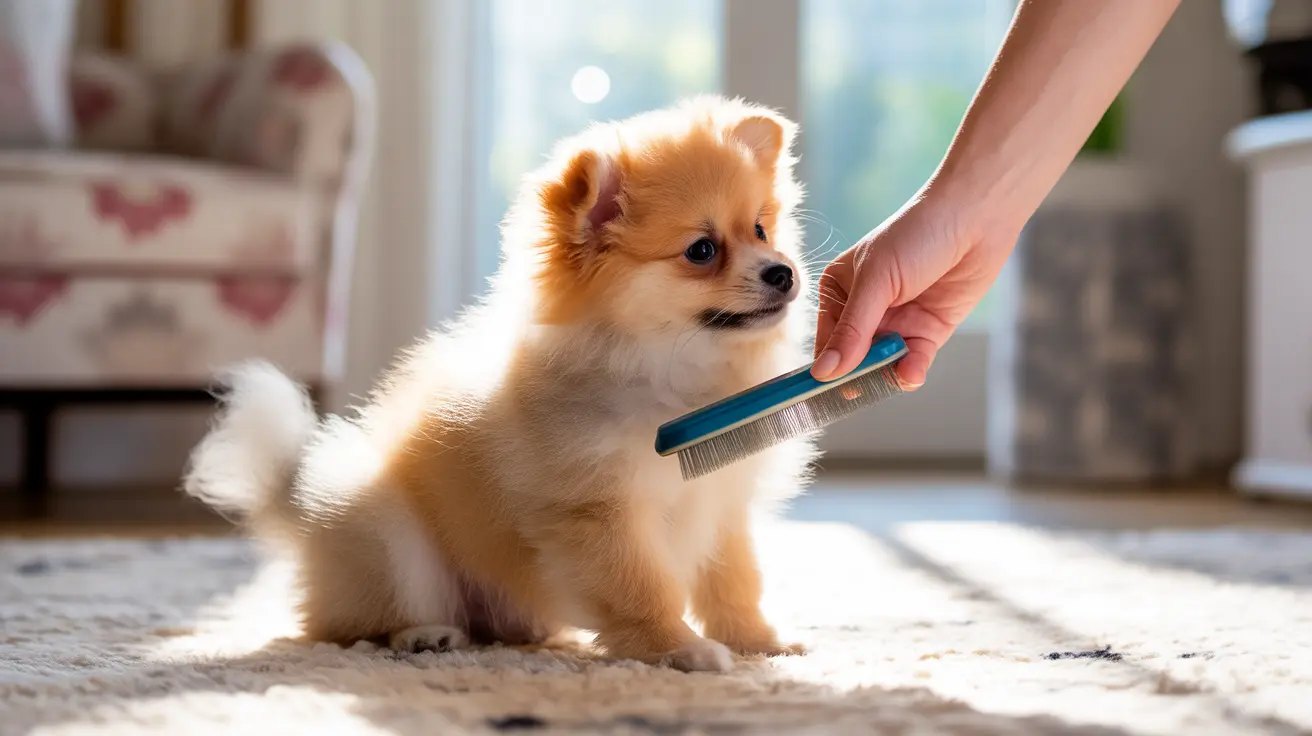Establishing proper puppy grooming routines is a crucial step in raising a happy, healthy dog. From preventing skin issues to building trust, early grooming practices lay the foundation for your puppy's lifelong wellbeing. This comprehensive guide will walk you through everything you need to know about puppy grooming, ensuring both you and your furry friend have a positive experience.
Why Start Grooming Early?
Beginning grooming routines during puppyhood offers numerous benefits beyond just keeping your pet clean. Early exposure helps puppies develop comfort with handling, making future veterinary visits and grooming sessions much less stressful. Regular grooming also allows you to spot potential health issues early, from skin problems to unusual growths.
Essential Grooming Basics for Puppies
Brushing Fundamentals
Regular brushing is the cornerstone of good grooming habits. For most puppies, daily brushing helps:
- Remove loose fur and prevent matting
- Distribute natural skin oils throughout the coat
- Create opportunities for bonding
- Allow early detection of skin issues or parasites
Bathing Your Puppy
While puppies don't need frequent baths, establishing a proper bathing routine is important. Use lukewarm water and puppy-specific shampoo to avoid skin irritation. Most puppies benefit from bathing every 4-8 weeks, though this can vary based on lifestyle and coat type.
Professional Tools and Techniques
Investing in the right grooming tools makes a significant difference in your success:
- Soft-bristled brush appropriate for your puppy's coat type
- Puppy-specific nail clippers or grinder
- Gentle dog shampoo and conditioner
- Ear cleaning solution
- Dog toothbrush and toothpaste
Developing a Grooming Schedule
Create a consistent grooming routine that includes:
- Daily brushing sessions (5-10 minutes)
- Weekly ear checks and cleaning
- Nail trimming every 2-3 weeks
- Regular dental care
- Professional grooming visits every 4-6 weeks for long-haired breeds
Building Positive Associations
Make grooming enjoyable for your puppy by:
- Using treats and praise during sessions
- Starting with short, positive experiences
- Gradually increasing handling duration
- Maintaining a calm, patient approach
- Creating a comfortable grooming space
Special Considerations for Different Coat Types
Different breeds require different grooming approaches:
- Short-haired puppies need weekly brushing
- Long-haired puppies require daily attention to prevent matting
- Double-coated breeds need regular undercoat maintenance
- Curly-coated breeds may need professional grooming more frequently
Frequently Asked Questions
How often should I groom my puppy for optimal health and comfort?
Daily brushing is recommended for all puppies, with professional grooming every 4-6 weeks for long-haired breeds. Short-haired puppies may need less frequent professional care but still benefit from regular home grooming sessions.
What grooming tools are safest and most effective for puppies?
Start with soft-bristled brushes designed for puppies, rounded-tip nail clippers, and gentle puppy-specific shampoos. Avoid adult dog products that may be too harsh for puppy skin and coat.
When should I start introducing my puppy to grooming routines?
Begin gentle handling and grooming as soon as you bring your puppy home, typically around 8-12 weeks of age. Start with short sessions and gradually increase duration as your puppy becomes more comfortable.
How do I make my puppy comfortable with nail trims and ear cleaning?
Start by regularly handling your puppy's paws and ears without tools. Use treats and praise to create positive associations. Gradually introduce tools, making sessions brief and rewarding. Consider professional demonstration for proper technique.
At what point should I seek professional groomer help for my puppy's coat or skin?
Seek professional help if you notice persistent matting, skin issues, or if you're unsure about proper grooming techniques. It's also advisable to schedule a professional grooming session around 12-16 weeks of age to establish a positive grooming experience.
Conclusion
Successful puppy grooming combines patience, consistency, and the right techniques. By establishing good grooming habits early, you're investing in your puppy's health and comfort for years to come. Remember that every puppy is unique, so adjust your approach based on your pet's individual needs and comfort level.






